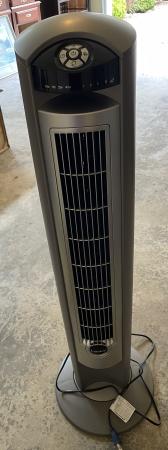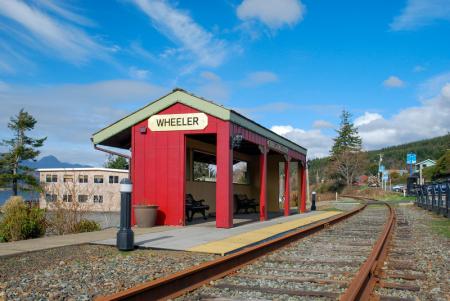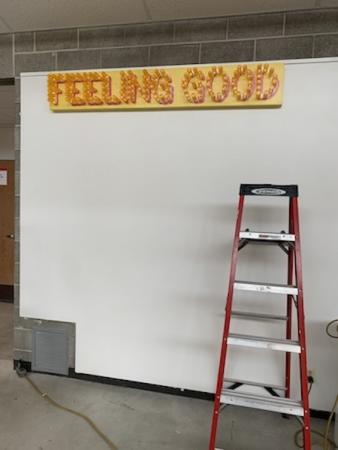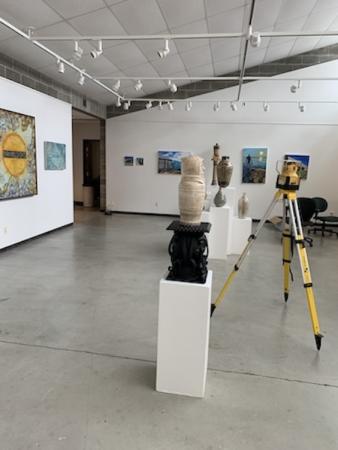By Brian Vitulli, General Manager, TCTD
You may have heard of the staffing challenges we’re experiencing here at the Tillamook County Transportation District (TCTD). You may be one of our riders, or family member or friend of one. You may be interested in using one of our services instead of driving your own vehicle – for environmental reasons, because you don’t like driving in bad weather, or maybe you don’t like driving after the sun goes down. Maybe you’ve never ridden on a bus, in Tillamook or any other city you’ve visited, but you’re looking for alternative ways to travel throughout the county or along the coast. Or maybe you’ve just been hearing about our issues on social media or here on the Tillamook Pioneer website. It is true that the services we provide is being impacted by a shortage of drivers.
For close to a year, the District has been managing the workforce shortage mostly through the commitment of staff and creative personnel management. In summer and fall of 2023, the two routes we operated to Salem, far outside of our service area, needed to be discontinued. It became more difficult to find additional drivers from those areas to work those routes, and to costly and time consuming to send personnel down there from Tillamook.
And very recently, several service disruptions and cancellations occurred due to drivers calling out sick and not enough drivers in reserve to fill-in for them. As an organization whose meaning is to provide transit service for members of our community, this is the worst possible scenario and something you never want to see. Why is this happening? What are they doing wrong? Those have been some of the questions coming from the community, and it’s a natural response. Let me address those questions and provide some context.
While some think this issue is isolated to our scenic slice of the Oregon coast, the truth is that transit agencies, whether large urban transit agencies operating buses, commuter rail, light rail, subways, and trolleys; smaller city transit operators; or smaller rural agencies like the Tillamook County Transportation District, are all experiencing a shortage of available drivers to operate crucial transportation services. Many transit providers throughout the nation are struggling with this issue at some level. Some are doing better than others with limited impacts; some are just barely managing to provide their service, and others are sporadically having to cancel trips or are operating at a reduced level of service because they cannot find enough drivers. That has happened a few times recently at TCTD when we had to cancel Town Loop (Route 1) trips and a few afternoon Portland (Route 5) runs. Without an immediate influx of drivers, the potential is there for further cutbacks. No, this is definitely not the direction the District wants to drive toward, but we may have no choice.
An additional, unexpected, challenge handed to the District, is the closing of the U.S. Renal Care dialysis care facility in Tillamook. This has put extra pressure on the District to provide transportation for individuals seeking life-sustaining transportation to treatment centers, when it is already short-staffed. TCTD is transporting individuals to dialysis centers in Astoria, Lincoln City, and Forest Grove three times a week, in addition to trying to reliably provide service to the customers that rely on our other routes.
COVID has had some long-lasting impacts, and is somewhat responsible for the driver shortage that we are seeing now, but there are other factors that have slowly made it more difficult to provide our services. The other fact is that transit agencies are not the only organizations experiencing employee shortages. Nearly every industry has been impacted. A trip along the coast will show you that. Many employers are short staffed, some have reduced hours, some are only open a few days a week, and some have to close last minute, and leave a sign on the door saying “Sorry we’re closed due to staffing shortages.”
Similarly, the trucking industry has been hard hit by a shortage of eligible drivers. Again, there are many reasons contributing to this, but one of the factors I am aware of are recent changes to how individuals are trained in order to receive their Commercial Drivers License (CDL). CDL training now needs to be taught by a certified training entity (CTE), which can be difficult due to there not being enough CTEs, as well as the cost. Tillamook Bay Community College has a wonderful program for this, but it is costly for the individual seeking that training. TCTD, however, is another CTE that can provide that training for free once you pass the mandatory requirements and are hired as a driver. Plus, you get paid a training wage while you are learning. Once you are trained and hold a CDL with the proper endorsements, your wage increases and you can begin driving for the District.
Why wouldn’t someone want to work for the District and take part in this designated CDL training program, to serve their community and help their neighbors, get paid while they’re training, and have a wonderful part-time or full-time driving career? I’m not sure. But if you are interested in learning more about the District, the services we provide, our mission, and the driving opportunities that are available right now, me and my team would certainly love to talk to you.
There are immediate openings at the District right now for someone with good people- and customer-service skills looking to drive part-time as an extra-board driver. You could be a retiree who wants to work a few hours driving during the week to help your community, or someone looking for a longer-term career with great benefits. As a flexible, part-time driver, you can tell us when you are available, and you’ll be called upon to drive when it matches your schedule. For full-time employees, an already great benefits package with excellent retirement options, paired with an improved wage scale and impressive annual cost of living increases and step increases on your anniversary, is waiting for you. We also need dispatchers to support our drivers and help keep our operations moving smoothly.
Interested in hearing more about the current happenings at the District?
We are in the process of completing some much-needed renovations to our Administration building and Transit Center. In fact, we’re planning a ribbon-cutting for May 6th to celebrate the reopening of our newly renovated Transit Center at Laurel and 2nd. Come down to see the improvements we’ve made!
We’ve also submitted grant applications seeking funds to conduct a Zero Emission Vehicle Feasibility Study for the District and our partner transit agencies in Clatsop, Columbia, Lincoln, and Benton counties. TCTD is one of five members in the Northwest Oregon Transit Alliance (NWOTA), which is branded as NW CONNECTOR. Two of our goals are to: Improve transit connections between communities, and to market our transit services to our customers in all five counties as a single, coordinated, seamless service. Through this alliance, our riders can travel up and down the coast, from Yachats or Newport in the south, up through the communities in Tillamook County, before spending some time in Seaside or Astoria. Many visitors to our region take Amtrak to Albany and Portland, and take one of the NW CONNECTOR services to come to the coast, all by taking transit and without driving yourself.
The District also successfully secured nearly $600,000 in additional COVID Recovery and healthcare transportation funds to sustain the operation of crucial transit services to our customers and rural veterans living in Tillamook County.
We have two, new beautiful buses that we are waiting for our vendor to complete production inspections on, but once they are complete, look for them on our Route 3 to Manzanita and Cannon Beach, Route 4 to Lincoln City, or Route 5 to Portland.
 Do you remember our big, red trolley? We are planning to roll that out in our community on the Town Loop (Route 1) in the near future!
Do you remember our big, red trolley? We are planning to roll that out in our community on the Town Loop (Route 1) in the near future!
While we are currently being tossed about in fairly rough seas, I do believe the foundational strengths of the District, continued steady leadership from the Boardand my t, myself, and my team, and the commitment of its staff, will help navigate to calmer waters. And when that happens, opportunities will begin to present themselves in the form of a more reliable system that our customers can continue to depend on and deserve, operating the type of services that better suit our customers and connects them with the places they want to go, and perhaps right-sizing the system to maintain its effectiveness while improving efficiencies and spending its resources wisely.
Interested in talking to someone about working at the District, email us at hr@tillamookbus.com or info@tillamookbus.com or call us at 503-815-TCTD (8283).


 Do you remember our big, red trolley? We are planning to roll that out in our community on the Town Loop (Route 1) in the near future!
Do you remember our big, red trolley? We are planning to roll that out in our community on the Town Loop (Route 1) in the near future!


















